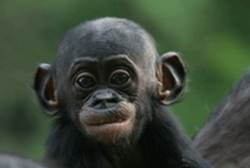“Didn’t Greta ever tell you about our famous Western spines?”
And with that, Carlisle, who never once, as far as Lili knew, blamed Greta for his dented leg, began to lug Lili up the stairs. With each bounce came a horrible jolt of pain, and Anna gave Lili her hand to squeeze.
The terrace looked out across the Elbe to the Japanese Palace and the right bank. Traffic in the river was heavy, with the paddlewheelers and the coal freighters and the dragon-fronted gondolas and the rent-a-day rowboats. Carlisle locked the brake of Lili’s chair in the space between two benches, beneath one of the square- trimmed poplars, at the terrace’s rail. Carlisle stood next to her, Anna on her other side. Lili could sense their hands on the back of her chair. Young couples were on the terrace, holding hands, boys buying girls sacks of grape- flavored candy from a vendor with a cart. On the grassy beach on the other side of the Elbe, four little boys were flying a white rag-tail kite.
“Look how high their kite is!” Anna pointed to the boys. “Higher than the city, it seems.”
“Do you think they’ll lose it?” Lili said.
“Would you like a kite, Lili?” Anna said. “Tomorrow we’ll get you one if you like.”
“What do they call this place?” Carlisle said. “The balcony of Europe?”
They said nothing for a while, and then Carlisle said, “I think I’ll go buy a bratwurst from that little man. Are you hungry, Lili? Can I get you anything?”
She wasn’t; she no longer ate much at all, which of course Carlisle knew. Lili tried to say “No, thank you,” but couldn’t form the words.
“Do you mind if we go off for a few minutes to find that man?” Anna said. “We won’t be gone more than a minute or two.”
Lili nodded, and Carlisle’s and Anna’s shoes ground through the gravel, drifting away. Lili shut her eyes. The balcony of the whole world, she thought. Of my whole world. She could feel the sun on her eyelids. She heard a couple one bench over crunching on their candy. And beyond that the slap of water on the side of a boat. A tram called, and then the bell of the cathedral. And for once Lili stopped thinking about the misty, double-sided past and the promise of the future. It didn’t matter who she once was, or who she’d become. She was Fraulein Lili Elbe. A Danish girl in Dresden. A young woman out in the afternoon with a pair of friends. A young woman whose dearest friend was off in California, leaving Lili, it suddenly felt, alone. She thought of each of them-Henrik, Anna, Carlisle, Hans, Greta. Each, in his own way, partially responsible for the birth of Lili Elbe. Now she knew what Greta had meant: the rest Lili would have to undergo alone.
When she opened her eyes, Lili saw that Carlisle and Anna hadn’t yet returned. She wasn’t worried; they’d come back for her. They would find her in her chair. Across the river the boys were running and pointing to the sky. Their kite was lifting higher than the willows, higher than even the Augustusbrucke. It was flying up over the Elbe, a white diamond of bedsheet reaching, bright from the sun, tugging on the boys’ spool-rolled string. Then the line snapped, and the kite sailed free. Lili thought she heard the overly excited shrieks of little boys buried in the breeze, but that would have been impossible; they were too far away. But she had heard a muffled shriek somewhere; where had it come from? The boys were jumping up and down in the grass. The boy with the spool received a punch from one of his pals. And above them, the kite was trembling in the wind, swooping like an albino bat, like a ghost, up and up, and then down, rising again, crossing the Elbe, coming for her.
AUTHOR’S NOTE

This is a work of fiction loosely inspired by the case of Einar Wegener and his wife. I wrote the novel in order to explore the intimate space that defined their unusual marriage, and that space could only come to life through conjecture and speculation and the running of imagination. Some important facts about Einar’s actual transformation lie in these pages, but the story, as recounted here with its details of place and time and language and interior life, is an invention of my imagination. In early 1931 when the news broke that a man had changed his gender, newspapers around the world ran accounts of Einar Wegener’s remarkable life. (It is interesting to note that Lili Elbe herself leaked the story to the press, and wrote some stories about herself, including her own obituary, under a pseudonym.) Many of those articles were helpful in writing this novel, especially those in
ACKNOWLEDGMENTS

The number of people who played a role in bringing this book to publication is long, and to each I extend my gratitude.
My early readers: Michael Lowenthal, Lee Buttala, Jennifer Marshall, Mitchell Waters, Chuck Adams. My Random House colleagues, present and former, who never balked at having a novelist in their midst: Ann Godoff, Alberto Vitale, Bruce Harris, Joy deMenil, Leah Weatherspoon, Cathy Hemming, Sascha Alper, Benjamin Dreyer, Courtney Hodell. The staff at Viking, each a writer’s advocate: Jonathan Burnham, who intelligently edited the early drafts, my championing and deft editor Barbara Grossman, Ivan Held, Hal Fessenden, Leigh Butler, Jim Geraghty, Paul Slovak, Gretchen Koss, Amanda Patten, Paul Buckley, and Alex Gigante for his legal counsel; and for their hard work on the publication, Lynn Goldberg and Mark Fortier. For their kind assistance in Copenhagen, Liselotte Nelson, Susanne Andersen, Mette Paludan, my excellent translator Kirsten Nielsen, Luis Soria, and Peter Heering. For his help with the German chapters and publication, Georg Reuchlein. Bill Contardi, Eric Price, Todd Siegal, and Stephen Morrison each watched over the novel’s progress with godfatherly eyes.
And, finally, Elaine Koster, my agent and friend.
ABOUT THE AUTHOR

David Ebershoff is the Publishing Director of The Modern Library, a division of Random House. He is a graduate of Brown University and the University of Chicago. Originally from Pasadena, California, he now lives in New York City. His first collection of short stories,


